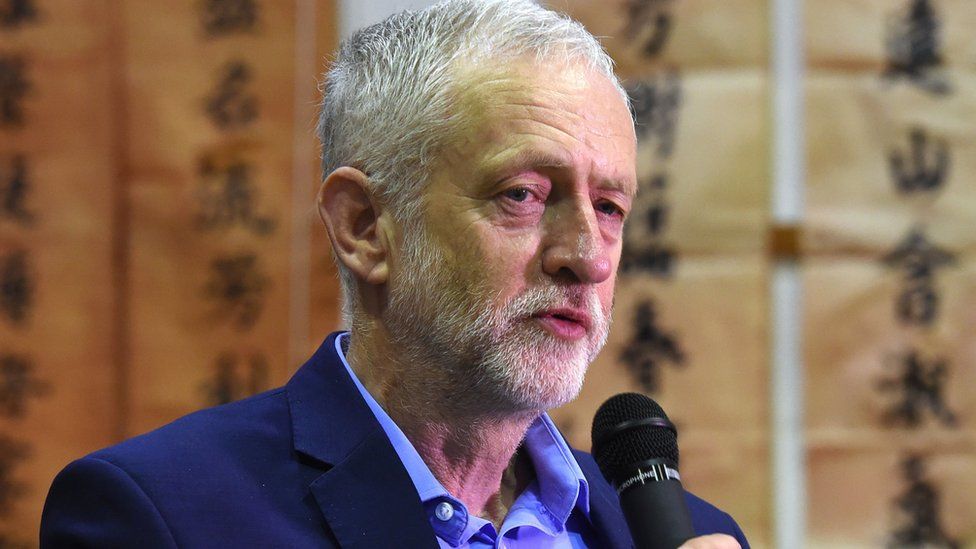General election 2017: Corbyn pressed over IRA comments
- Published

Jeremy Corbyn has refused to single out the IRA for condemnation when pressed over his past campaigning activities.
The Labour leader said "all bombing is wrong", as he was repeatedly asked to condemn the IRA alone for its role in the Troubles.
He said he had worked hard to help secure peace in Northern Ireland.
But Democratic Unionist Party leader Arlene Foster launched an attack on the Labour leader, saying he was "beyond the political pale".
In a speech in London, Northern Ireland's former first minister said: "Here we have a man who is putting himself forward to lead our nation and yet he cannot condemn an organisation which was taking away the fundamental human rights of British citizens living not just in Northern Ireland but right across the United Kingdom."
Mr Corbyn's campaigning during the Troubles has come under renewed scrutiny since his election as Labour Party leader.
He and shadow chancellor John McDonnell have been prominent supporters of Sinn Féin; before the IRA ceasefire they controversially met the party on a number of occasions in Westminster during the 1990s.
The Labour leader has said the meetings formed part of his attempt to bring about peace in Northern Ireland at that time.
He has also been criticised over his activities with the Troops Out movement, which campaigned to end British military involvement in Northern Ireland in the 1980s.
In an exchange with interviewer Sophy Ridge on Sky News on Sunday, Mr Corbyn was asked to condemn the IRA. He replied that he "condemned all those that do bombing, all those on both sides".
Asked again, he added: "There were Loyalist bombs as well. I condemn all the bombing by both the Loyalists and the IRA."
He added: "I recognised that you had to bring about a peace process in Ireland. I did my best to assist in that process and that is the way you bring about peace anywhere in the world".
'Context'
Asked whether he had been backing "one clear side" in the conflict, he replied: "I worked with colleagues in parliament in the SDLP and the Labour party, I visited Northern Ireland on a number of occasions, I met people from right across the spectrum."
He said he had campaigned on behalf of people who had suffered miscarriages of justice, like the Birmingham Six and the Guildford Four, and added: "You have to talk to people with whom you don't agree and I did."
The Conservatives said people would be "outraged" that the Labour leader would not "unequivocally condemn the IRA".
Northern Ireland Secretary James Brokenshire said: "I have listened with interest and concern to the various attempts by Jeremy Corbyn and John McDonnell to explain their attitudes towards IRA terrorism during the 1980s and 1990s.
"Their complete failure unequivocally to condemn terrorism, and to attempt to contextualise it, are deeply worrying coming from two people who in just over two weeks seek to be entrusted with the security of the United Kingdom."
But Sinn Fein president Gerry Adams said Mr Corbyn was "on the right side of history" in supporting Irish republicans and had respected the party's democratic mandate.
"What he did was very modest, what he did was very fundamental," Mr Adams said.
Speaking on the BBC's Sunday Politics, shadow chief secretary to the Treasury Peter Dowd said the comments had to be seen "in the context of Jeremy Corbyn for many years trying to move the peace process along".